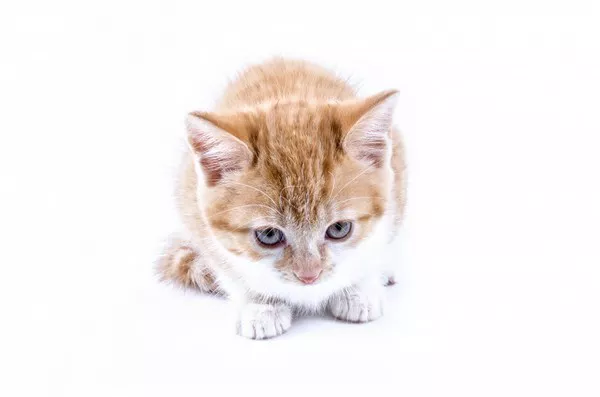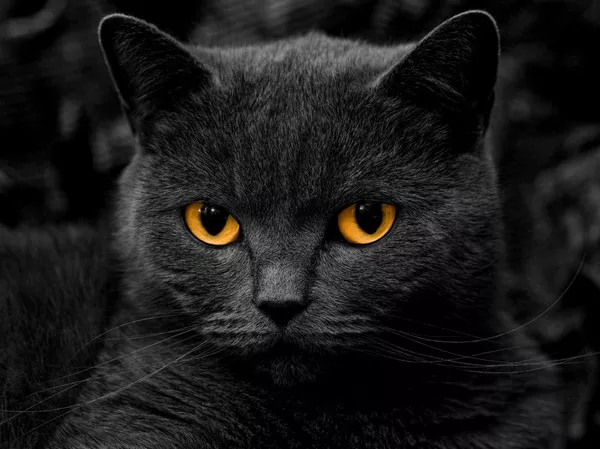Cats have long captivated human hearts with their playful antics and independent spirit. Among the many fascinating aspects of feline behavior, one of the most critical is their dietary habits. As obligate carnivores, cats have evolved to thrive on a diet primarily composed of meat. This essay delves into the reasons behind cats’ meat-centric diet, the nutritional requirements that drive their carnivorous behavior, and the implications for cat owners in terms of feeding practices and health considerations.
The Evolutionary Background of Cats
Ancestry and Adaptation
Domestic cats (Felis catus) are descendants of wild cats, particularly the African wildcat (Felis lybica), which roamed the earth approximately 10,000 years ago. As these wildcats adapted to life alongside humans, they began to hunt rodents and other small animals that were attracted to human settlements. This symbiotic relationship not only provided a reliable food source for the cats but also helped control pest populations for humans.
Over time, the evolutionary pressures faced by these early cats shaped their dietary needs. Unlike omnivorous animals that can derive energy from a variety of sources, cats became specialized hunters, relying heavily on the nutrients found in animal flesh. This specialization is evident in their physiology, including their sharp retractable claws, keen senses, and powerful jaws designed for capturing and consuming prey.
The Role of Hunting in a Cat’s Diet
Cats are instinctual hunters, and their predatory behavior is deeply ingrained. Even well-fed domestic cats display hunting behaviors, such as stalking, pouncing, and playing with their “prey.” This instinctual drive is crucial for their physical and mental well-being. Hunting provides not only food but also exercise and mental stimulation, which are essential for maintaining a healthy lifestyle.
Nutritional Requirements of Cats
Essential Nutrients from Meat
Cats have specific dietary requirements that set them apart from other animals. Their bodies are designed to process and utilize nutrients found predominantly in animal tissues. Some of the key nutrients that cats derive from meat include:
Proteins: Cats require a high protein intake for energy, muscle maintenance, and overall health. Unlike many other animals, cats cannot efficiently convert carbohydrates into energy, making protein their primary energy source.
Amino Acids: Certain amino acids are essential for cats, meaning they must obtain them from their diet. For instance, taurine, arginine, and methionine are crucial for various bodily functions, including heart health, vision, and reproduction. These amino acids are abundant in animal tissues but scarce in plant-based foods.
Fatty Acids: Cats also require specific fatty acids, such as arachidonic acid, which is found in animal fat. These fatty acids play vital roles in maintaining healthy skin, fur, and overall cellular function.
Vitamins and Minerals: Meat provides essential vitamins (like B vitamins) and minerals (such as calcium and phosphorus) necessary for a cat’s growth and development. Some vitamins, such as vitamin A, are available in animal sources but not in plant sources, making meat an indispensable part of a cat’s diet.
Digestive Adaptations
Cats possess a unique digestive system that is optimized for a meat-based diet. Their stomachs are highly acidic, which helps break down protein and kill harmful bacteria found in raw meat. Additionally, cats have shorter intestines compared to omnivorous animals, reflecting their need to process protein-rich foods quickly.
The absence of certain digestive enzymes, such as amylase, which helps break down carbohydrates, further illustrates their adaptation to a carnivorous diet. This lack of enzymes means that cats are less efficient at digesting plant-based materials, reinforcing the importance of meat in their diet.
Feeding Practices for Domestic Cats
Choosing the Right Diet
Understanding the nutritional needs of cats is crucial for cat owners. While cats are obligate carnivores, there are various feeding options available, including dry kibble, wet food, and raw diets. Each option has its pros and cons, and owners should consider their cat’s health, lifestyle, and preferences when selecting food.
Commercial Cat Food: Most cat owners opt for commercially prepared cat food, which is formulated to meet the nutritional needs of cats. High-quality brands use meat as the primary ingredient and provide a balanced mix of proteins, fats, vitamins, and minerals.
Raw Diets: Some owners choose to feed their cats a raw diet, consisting of raw meat, organs, and bones. Proponents argue that this diet mimics what cats would eat in the wild. However, it requires careful planning to ensure that the diet is nutritionally complete and safe from pathogens.
Homemade Diets: Preparing homemade cat food can be another option, but it requires a thorough understanding of feline nutrition. Owners must ensure that the diet includes all essential nutrients and consult with a veterinarian or a pet nutritionist.
Common Misconceptions About Cat Diets
There are several misconceptions surrounding the dietary needs of cats. One common myth is that cats can thrive on a vegetarian or vegan diet. While some may argue that cats can adapt to plant-based foods, research shows that this can lead to serious health issues, including deficiencies in essential amino acids and other nutrients.
Another misconception is that feeding cats fish is a healthy choice. While cats may enjoy fish, it should not be the primary protein source, as excessive fish consumption can lead to health problems, including mercury poisoning and nutritional imbalances.
Health Considerations Related to a Meat-Based Diet
Obesity and Its Implications
One of the significant health concerns for domestic cats is obesity, often resulting from overfeeding or providing high-calorie diets. Cats that consume excessive amounts of meat-based diets, particularly those high in carbohydrates, can become overweight, leading to various health issues, including diabetes, arthritis, and heart disease.
To combat obesity, cat owners should monitor their cats’ weight, provide appropriate portion sizes, and encourage physical activity through play and stimulation. Regular veterinary check-ups are also essential to ensure that cats maintain a healthy weight and overall well-being.
Dental Health
Feeding cats a diet primarily composed of soft, wet food may lead to dental issues, as these diets do not provide the necessary abrasion to keep teeth clean. Incorporating dry kibble or dental treats can help promote better dental health by reducing plaque and tartar buildup.
Regular dental check-ups and cleanings are also crucial for maintaining a cat’s oral health. Owners should be aware of signs of dental disease, such as bad breath, difficulty eating, or swollen gums, and seek veterinary care if these symptoms arise.
Allergies and Sensitivities
Some cats may develop food allergies or sensitivities, which can manifest as gastrointestinal issues, skin problems, or behavioral changes. Identifying the specific allergen can be challenging, but it often involves trial and error with different protein sources. Common allergens include beef, chicken, and fish.
If a cat shows signs of food allergies, it is essential to consult with a veterinarian to determine the best course of action, which may include an elimination diet or hypoallergenic food.
Conclusion
Cats are remarkable creatures with a unique evolutionary background that has shaped their dietary needs. As obligate carnivores, they require a diet rich in animal-based proteins, essential amino acids, and nutrients that are not readily available in plant-based foods. Understanding these requirements is vital for cat owners to ensure their pets lead healthy, fulfilling lives.
Feeding practices should be carefully considered, taking into account individual cats’ preferences, health needs, and lifestyle. By providing a balanced diet that meets their nutritional needs, owners can help their cats thrive while enjoying the companionship of these fascinating animals.
In summary, cats do indeed eat meat, and this dietary preference is not just a quirk of their species; it is a fundamental aspect of their biology and health. As we continue to learn more about feline nutrition and health, we can better appreciate the intricate relationship between cats and their carnivorous nature.
Related topic:



























